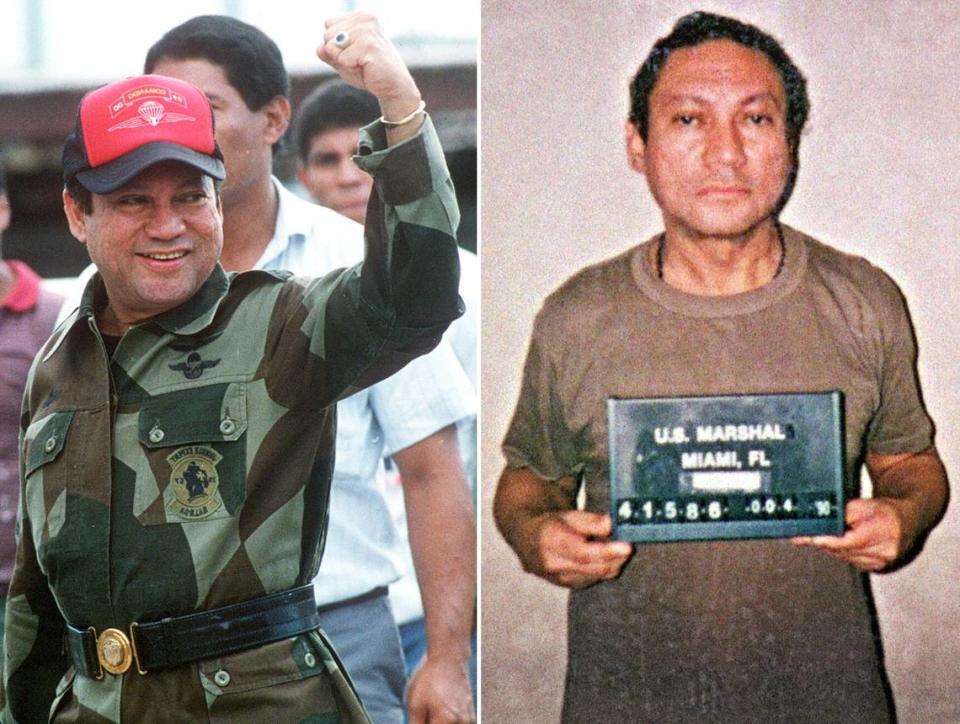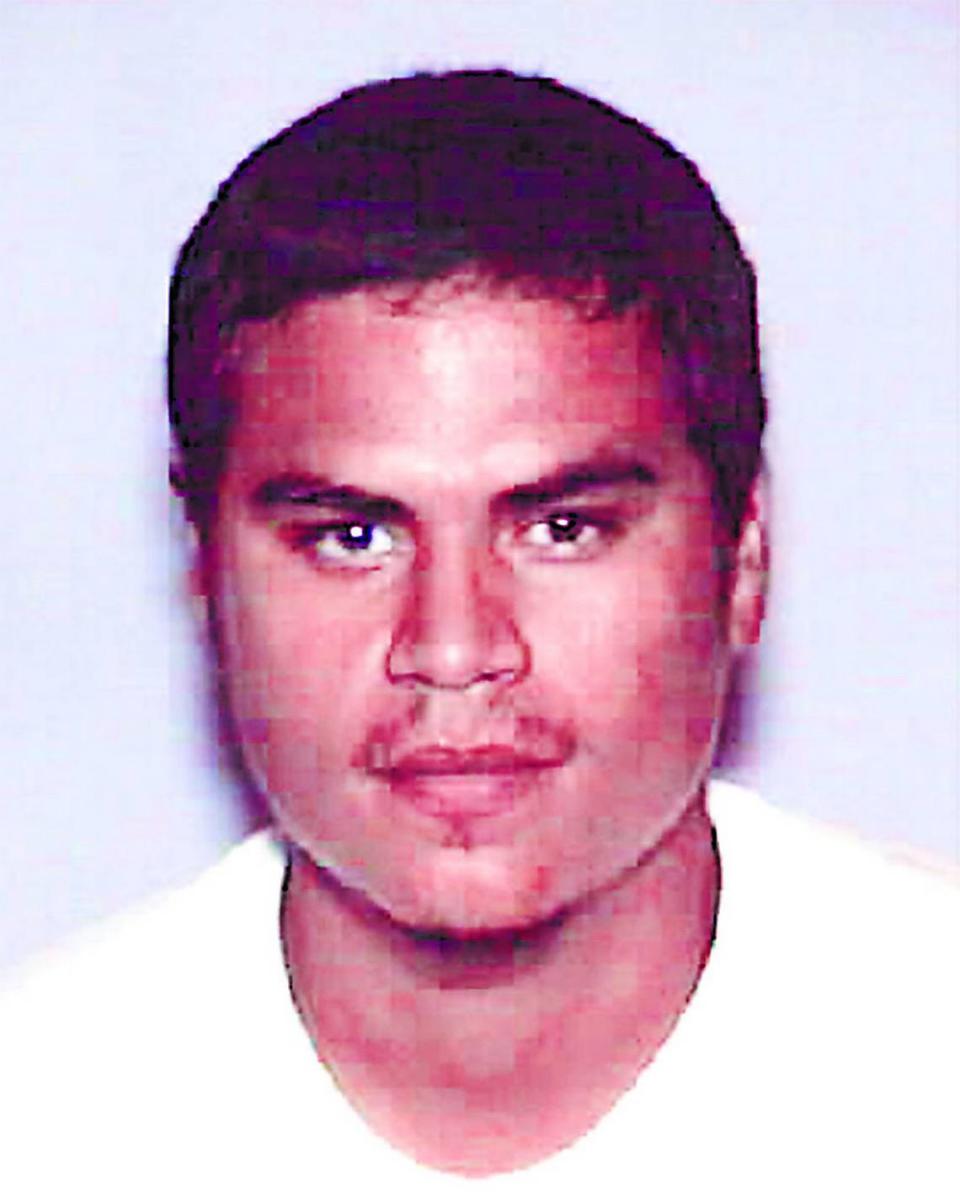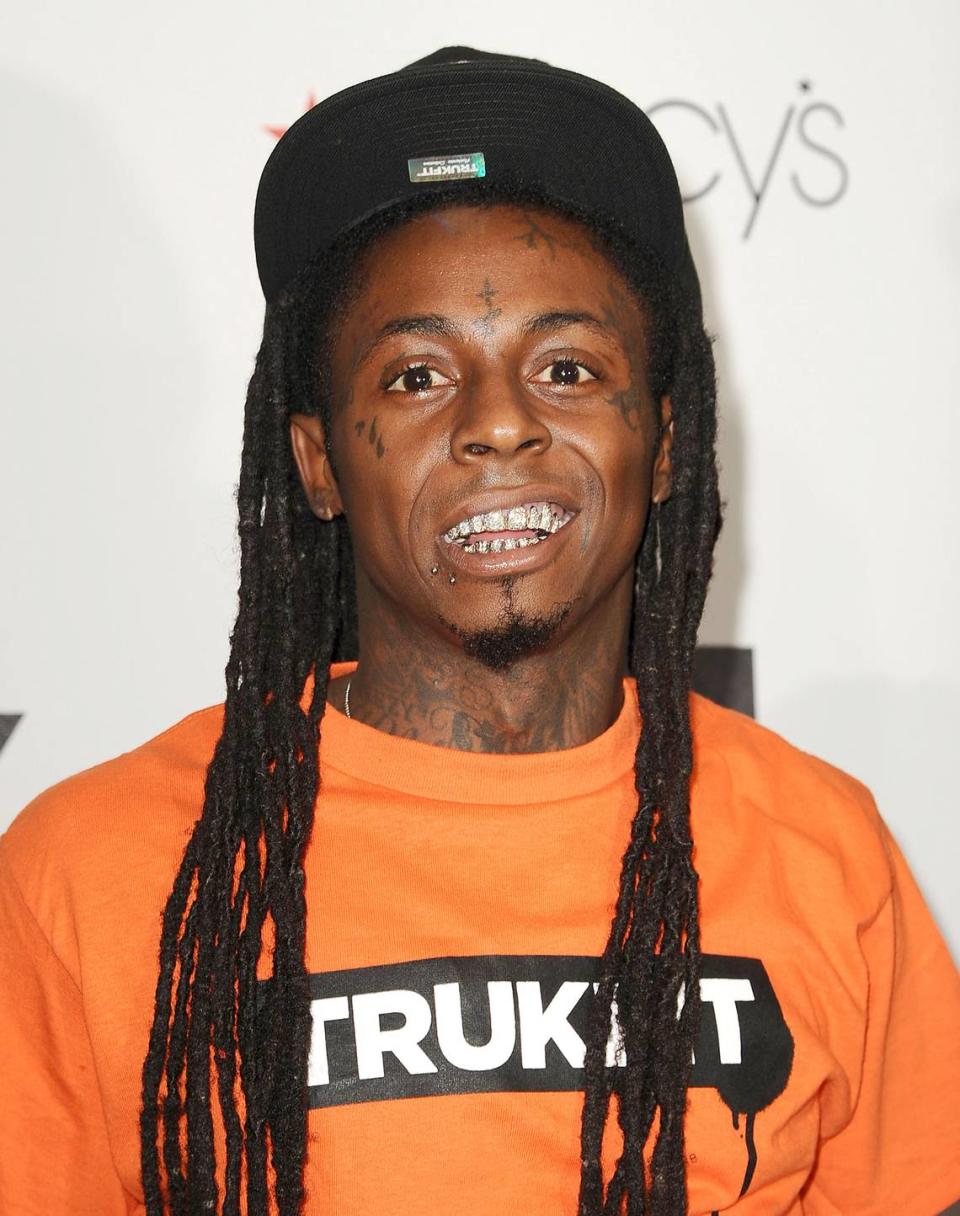Accused in Miami before Trump: a dictator, a cult leader, cocaine cowboys, even Lil Wayne
Former President Donald Trump might be the most famous person to be indicted in Miami, but he’s certainly not the only well-known defendant to appear at the downtown federal court building.
Just like its global status in business, Miami also is at the crossroads of crime.
We’ve seen a rogue’s gallery of the rich and famous walk through the courthouse door here: a U.S. terror suspect, a former leader of Panama, drug kingpins so notable they were known by just their first names.
Let’s take a look at some only-in-Miami cases:
Manuel Noriega

About: Gen. Manuel Noriega was the dictator of Panama. He also was a drug runner.
Indictment: A federal grand jury in Miami indicted Panama’s leader drug-running charges in 1988.
Trial: Noriega surrendered to U.S. troops in 1990 and was flown to Miami where he was put on trial and convicted.
Conviction and sentencing: A jury convicted Noriega on 8 of 10 counts of drug smuggling and racketeering. He was sentenced to 40 years in prison, which was eventually reduced by the judge to 30 years.
Jose Padilla

About: Padilla was a Chicago gang member who federal prosecutors say became an al Qaida recruiter after moving to the Fort Lauderdale area. Prosecutors say he trained with al Qaida in the years leading up to Sept. 11, 2001. He was among the first Americans to be held as an enemy combatant by the U.S. government following the 9/11 terrorist attacks.
Indictment: After three years of being held as an enemy combatant in a Navy brig in South Carolina, a Miami federal grand jury in November 2005 indicted Padilla on charges of conspiracy to murder U.S. nationals, conspiracy to provide material support to terrorists and providing materials support to terrorists.
Trial: A jury found Padilla guilty of conspiracy to commit murder and fund terrorism in August 2007.
Conviction and sentencing: In September 2014, a federal judge sentenced Padilla to 21 years in prison based on his 2007 conviction. He was originally sentenced to 17 years in 2008, The additional three years was tacked on because an appeals court ruled that his criminal past was not given enough weight when he was originally sentenced.
Willy and Sal

About: Willy Falcon and Sal Magluta are best known as WIllie and Sal, or “Los Muchachos.” They’re also known for being partners in years of cocaine-trafficking. Willie and Sal, Miami Senior High School dropouts, were recognized as “Cocaine Cowboy” kingpins who gave South Florida a deadly dose of drug trafficking in the 1980s. The partners used their speedboats to haul Colombian cocaine from the Caribbean to South Florida.
Indictment: A 1991 Miami indictment charged the pair with conspiring to import and distribute 75 tons of cocaine worth $2 billion between 1978 and 1991.
Trial: in 1996, the high-profile Miami trial ended with acquittals for both men. After the trial, the U.S. attorney’s office and FBI discovered that Falcon and Magluta had bought off the jury foreman. In 2002, they were retried on charges that included laundering of drug profits and conspiracy.
Sentencing: Falcon accepted a plea deal and was sentenced to 20 years in prison, and was released in 2017. Magluta got a life sentence.
Yahweh Ben Yahweh
About: He called himself the Black Messiah, and he was the leader of a killer cult. His teachings drew his followers into a web of racism, murder and terror in the 1980s. Yahweh Ben Yahweh preached racial and religious separatism from his Temple of Love on Northwest 62nd Street in Liberty City. Born Hulon Mitchell Jr. in Oklahoma, he died at age 71 in 2007.
Indictment: He was indicted in 1990. Federal prosecutors accused him of plotting 14 Miami-Dade County murders and two attempted murders, and of ordering the firebombing of a Delray Beach neighborhood.
Trial and sentencing: Although suspected in 20 homicides, he was convicted of one conspiracy charge. He served 11 years of an 18-year federal prison sentence.
Lil Wayne

About: He’s a rapper and Donald Trump supporter.
Indictment: A Miami grand jury indicted Lil Wayne in 2020 on federal weapons charges.
Trial: The rapper entered a guilty plea in December 2020 to possessing a firearm as a convicted felon, triggering a previous offense dating back more than a decade in New York.
Pardon: President Trump issued a pardon for Lil Wayne, then 38, who was potentially facing several years in prison. During the presidential campaign season, Lil Wayne had voiced support for Trump and tweeted a photo of them together in October at the Trump National Doral Golf Club.
Raul Martinez

About: He was best known as the charismatic mayor of Hialeah in the 1980s. In 1977, Raul Martinez got his political career started by winning a Hialeah City Council seat, becoming the second Cuban-American Hialeah council member. In 1981, he became mayor, the first Cuban-American to hold that seat in a major American city. As a strong mayor, Martinez also ran the city as chief administrator.
Indictment: Martinez was indicted in 1990 on allegations that he extorted almost $1 million in cash and real estate from developers in exchange for zoning approvals. He was suspended from his mayoral job, and he accused prosecutors of pursuing a politically motivated case.
Trial: Martinez was convicted in 1991. He remained free. With his case on appeal, he ran again in 1993 and won. A year later, his conviction was reversed.
Aftermath: Prosecutors tried two more times, but both trials ended in hung juries and the case was dropped in 1996. He stepped down as mayor in 2005.

 Yahoo Sports
Yahoo Sports 